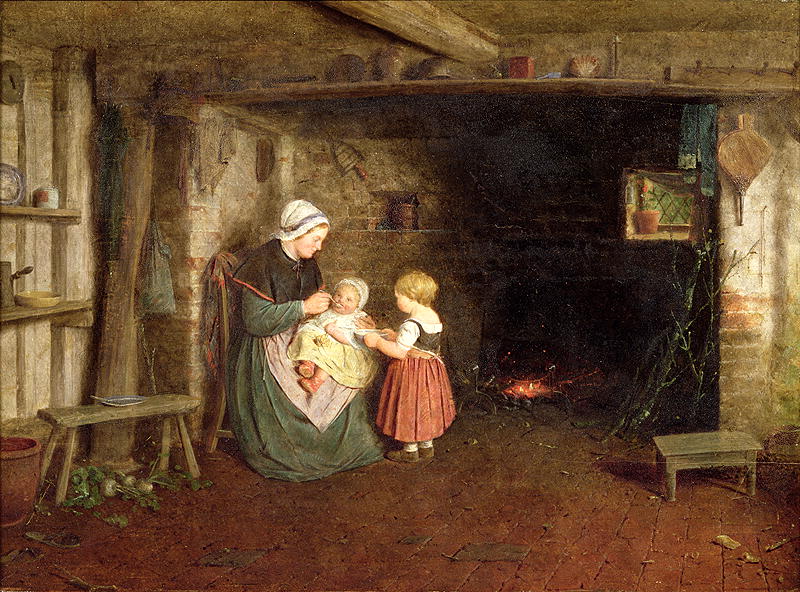One of the hardest things for us to watch is our children hurting. When they skin their knee, we are there with ointment, a band-aid and a huge mommy-kiss. Mothers intuitively respond with their armor. With no phone booth needed, the figurative Super Mom costume materializes. “Don’t worry,” our maternal need shouts, “I will and can fix it. Watch me take your pain away and make you feel much better. Oh, and here’s a popsicle to seal the deal.”
When it comes to emotional pain, it is somewhat harder. Depending on the degree of emotion, our helplessness becomes proportionate. There is no salve, no Disney-themed bandage, and no Firecracker Popsicle to soothe the type of hurt I want to talk about today.
Death of a Parent.
Children have all kinds of emotions when they lose a mom or a dad. Their whole existence changes in a way that we as adults could not possibly grasp.
There are those kids that, for some reason, cope with their loss by detaching to a degree that they can fool us into thinking they are somewhat ok. Then, there are those kids who are clearly struggling. For them, bereavement groups and new coping skills are necessary nourishment.
I want to talk about the children who are so immersed in pain that they don’t resemble themselves. You know these children. They act out, push people away, have trouble keeping friends, and tend to not be as honest as you would like. They are so busy escaping their enormous hole, that they take prisoners. Their friends, if they are lucky to make and keep any, don’t want to be around them because they are hard to play with. There is no joy in the changed world of these children. These are the kids that tend to blame everyone for everything due to their extreme lack of ability to internalize this enormous, unspeakable loss. They can’t even speak about their emptiness. They tend to become their emptiness.
How do we help our child’s pain when it looks like this? First, remember you have just lost your spouse and are trying to hold yourself together. Start with self empathy. This will give you wiggle room to fiercely love your child while making all kinds of mis-steps with them.
There is no mapping for the parent who is left in the wake of a disaster with a child in shock. See your child as the type of wounded warrior who is fighting, literally fighting for their life. Fights don’t look pretty, so expect to get bloody. Stay as calm as humanly possible. These kids are watching you closely. You are their world now, (no pressure).
The best advice I have heard, is by Dr. Peggy Dubois. She states that it is not the child’s rage you are experiencing, rather this new mood of robbed innocence. This child is far out of her body right now. She doesn’t have a clue how destructive she is being to herself, and anyone within a hundred foot radius. It’s too bad that you can’t get a restraining order for your child to use on themselves at these times. I say this because there are times when a child’s experience with life is so, so, so far out of what would be considered even slightly ok, that no one “gets” them, not even they themselves.
They look, act, and feel like aliens. How scary and how terrifying is it for a tiny body to feel such huge emotions?
Try to remember these words: I, as their surviving parent am absorbing all their emotion, plus the intensity of my own fear for them.
Staying calm is huge. Try not to take away things as punishment, (and you will feel like punishing them), after bouts of acting out. There is already too much loss for them to grasp. At this point, losing toys doesn’t work.
Validate up the wazoo (yes, you can quote me on that). Praise them for the tiniest things. “Great job of walking through the store without taking anything.” This example may sound absurd, but for those parents who have a child morphing to this degree, this will resonate. This shows them that you DO see their behaviors. It tells them that you appreciate how hard it is for them to not fill-up their void on impulse.
Create a ritual for the two of you everyday. This could be reading a book at night, saying a prayer of appreciation, counting how many new flowers have bloomed, or anything that reminds them of their goodness. Do this everyday. Make it a sacred routine.
Please know this: You are in a terrible phase with them right now, it will get better. Join a children’s bereavement group, and get them and you as much help as humanly possible.
The sea will rise up to meet you, you will not drown.


